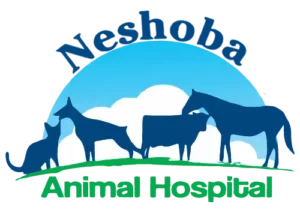Ever noticed how your old pooch’s eyes still light up at mealtime? Yeah, that never changes! But what does change is what he needs from his food as he gets older. Don’t worry, though, we’ve got some expert advice from a nearby Philadelphia, MS vet on how to keep your senior pup happily chowing down.
Modify Your Senior Dog’s Meal Schedule as Required
Curious about your aging dog’s feeding schedule? It varies from dog to dog, so consulting your vet is key. Typically, though, Fido might prefer multiple smaller meals throughout the day. Dividing his daily food into two to five servings could help keep him satisfied and content, promoting better digestion and overall well-being.
Present the Right Amounts
Figuring out the right portion size for your dog isn’t always straightforward. It depends on factors like his size and the type of food he eats. Start by checking the feeding guidelines on the food package. Many pet food manufacturers have charts on their websites that you can refer to. But keep in mind, these recommendations can differ between sites and tend to be a bit generous. For example, Purina might suggest 2 to 2-⅔ cups daily for an adult dog weighing 26 to 50 pounds, while Rover might say 2½ – 3¼ cups.
Typically, it’s recommended to lower a senior dog’s caloric intake by around 20 to 30 percent. However, as Fido transitions into his golden years, he may require extra calories to support his aging body. External factors like weather also play a role; dogs with thinner coats might need a tad more food during colder seasons.
It’s crucial to defer to your veterinarian’s expertise and judgment in these situations.
Optimal Timing for Switching to Senior Dog Food
Determining when a dog transitions into maturity or seniority largely depends on its breed, especially in relation to size. Larger breeds tend to age more swiftly than smaller ones, with some giant breeds reaching senior status as early as five years old, while smaller breeds like Chihuahuas might not reach their golden years until they’re ten or older. However, there are general benchmarks to consider. Typically, a dog is considered mature when it reaches the midpoint of its average lifespan. Once it surpasses 75% of its lifespan, it’s classified as a senior. Dogs that exceed their expected lifespans are categorized as geriatric.
Maintain Fido’s Hydration
Ensuring your dog stays hydrated is essential! If you have a large home or multiple floors, think about purchasing a fountain or smart waterer. You could also scatter extra water bowls throughout your space to provide easy access.
Think About Incorporating Supplements
A variety of vitamins and supplements are tailored to the needs of aging canines, spanning multivitamins, antioxidants, amino and fatty acids, and prebiotics and probiotics, each offering distinct advantages. Omega-3 and -6, for instance, support skin, coat, bone, and joint health. Other supplements such as glucosamine and vitamin K target bone and joint issues. Additionally, dogs may benefit from greens, while those with vision impairments might require Vitamin A supplementation. Nonetheless, excessive Vitamin A intake should be avoided.
Before incorporating supplements, discuss them with your Philadelphia, MS vet. Keep an eye out for any potential reactions.
Select Wholesome Treats
Your canine companion can still indulge in treats, but be mindful. Many store-bought options are packed with calories and fat, lacking nutritional value. Opt for healthier brands or whip up homemade treats.
Include Fruits and Veggies
Fido, despite belonging to Carnivora, is actually an omnivore. While wild dogs primarily consume meat, incorporating fruits and veggies into their diet can be beneficial. Treat your pup to wholesome snacks such as carrot sticks, dried sweet potato slices, apple slices, or bananas. Just remember to verify the safety of each item before offering them.
Consider adding some pureed pumpkin to your pet’s food, but, as always, consult your vet first.
Picking the Appropriate Senior Dog Food
Pet food has advanced well beyond traditional kibble, with specialized formulations designed specifically for your furry friend. There’s a plethora of options available, catering to various needs without breaking the bank. Opting for senior dog food can help manage calorie intake and prevent weight gain. Additionally, you’ll find options targeting specific conditions like joint support. Look for a formula that offers Fido the ideal balance of fat, protein, and essential nutrients.
Choosing between wet and dry food for your senior dog requires consideration of their individual needs. Factors like Fido’s taste preferences, health conditions, and dental or dietary issues will guide your decision. While wet food may be preferred by many dogs and is beneficial for dental health, dry food offers advantages such as teeth cleaning and cost-effectiveness. You can also explore a combination of both or moistening dry kibble with water.
Consult your vet for tailored recommendations.
Stay on Top of Dental Maintenance
In senior dogs, dental problems are common and can disrupt their eating habits. Maintain your pet’s oral hygiene by brushing their teeth regularly and offering dental treats or chews. If you observe any abnormalities, reach out to your vet promptly.
Switch to Senior Pet Food
Make it a habit to consult your Philadelphia, MS veterinarian about Fido’s diet regularly. Your vet can offer insights on the ideal timing to transition to a senior formula food. Ensure a smooth changeover by gradually introducing the new food over several days, minimizing the risk of upsetting Fido’s stomach.
Verify Your Dog’s Food is at the Correct Temperature
As a rule, it’s best to serve Fido’s food at room temperature. Before feeding, take refrigerated food out an hour in advance for warming. If microwaving, ensure it’s not too hot by testing the temperature beforehand.
Offer Fido a Calm Place to Dine
The layout of your home and the number of pets you own influence this choice. If Fido is your only dog, feel free to place his bowls in a convenient spot like the kitchen. However, in a multi-pet household, meal times might become chaotic. Consider allocating a separate dining area for your senior dog to eat in peace, away from any disturbances caused by his fellow furry friends.
Contemplate Buying Raised Dishes
Consult your vet for tailored recommendations regarding Fido’s bowl selection. Raised dishes can enhance comfort by reducing the need for him to splay his feet or lower his neck too much while eating. Yet, be mindful of potential bloat concerns, especially for larger dogs, with these types of dishes.
Exercise Caution to Prevent Overfeeding the Pup
As Fido grows older, his enthusiasm for food remains strong, yet his physical activity tends to decline, mirroring the natural aging process we all experience. Your furry companion may no longer exhibit the same level of energy, perhaps preferring to observe squirrels in the yard rather than engage in vigorous pursuits. Consequently, his calorie expenditure decreases. This reduction in activity, coupled with potential overfeeding, can contribute to a troubling cycle of decreased activity and weight gain. As Fido becomes heavier, maintaining fitness becomes more challenging, perpetuating the cycle of weight gain and reduced mobility. Thus, it’s crucial to monitor his diet and activity levels closely to ensure his continued health and well-being.
Monitor your canine companion’s body condition carefully, especially as they age and are more susceptible to obesity. You should promptly address any weight gain by consulting your veterinarian for tailored advice on portion sizes and treats. Consider measuring your pet’s food to ensure precise calorie intake, thereby preventing overfeeding or underfeeding.
As your dog grows older, his nutritional requirements will shift. Transitioning to senior food, introducing supplements, and modifying meal schedules may be warranted. Consult your Philadelphia, MS veterinarian for personalized recommendations on catering to your aging pet’s dietary needs.
Have questions regarding your dog’s well-being or needs? Get in touch with us, Neshoba County Animal Hospital, today!







